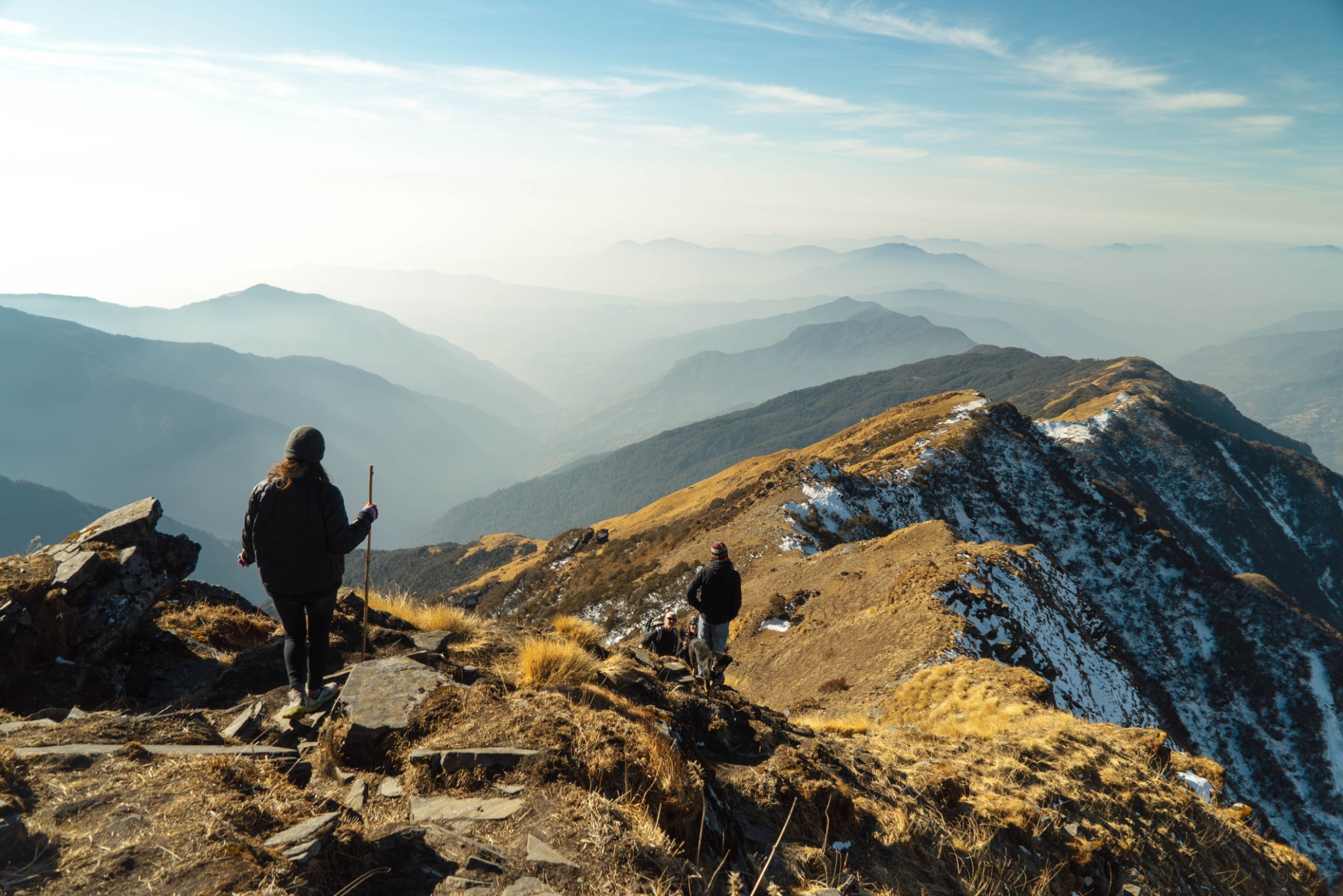October 17th, 2019
ALEX WEISZ
“And the LORD said to [Moses], “This is the land which I swore to Abraham, Isaac, and Jacob, ‘I will assign it to your offspring.’ I have let you see it with your own eyes, but you shall not cross there.’ So Moses the servant of the LORD died there.” – Deuteronomy 34:4-5
In this week’s Torah portion, the final reading of the annual Torah reading cycle, we hear about the final actions of Moshe Rabbeinu’s life. Moses gives his final blessings to the tribes of the Israelites, then makes his final ascent upon Mount Nebo to overlook the Promised Land before he passes away. In addition to being a ripe one hundred and twenty years old, Moses was forbidden to enter the land after a prior lapse of faith with God. After 40 years of leadership, Moses led his people up until their very entry into the Promised Land.
It is certainly worth asking – how could Moses carry on his leadership duties while knowing that he wouldn’t be rewarded with entering the Promised Land? He was not allowed to reap the benefits of his labor as a punishment. How could he go on leading the Israelites without any personal motivation to continue doing so? After all, Moses notes on numerous occasions that the Israelites are a difficult bunch. Certainly fear of further Divine punishment is an understandable motive; nevertheless, Moshe is heralded in the final verses of the Torah as being the greatest prophet and leader of Israel, so there must be a reason beyond this. Ultimately, it is his love of his people, specifically the younger generations that will have the opportunity to enter the land, that allowed Moses to continue his giving leadership in spite of his punishment.
There is a story in the Talmud1 of the scholar Honi, who finds a peculiar sight while traveling down the road: an elderly man planting a carob tree. Puzzled, Honi asked the man how long it will take for the tree to bear fruit, to which the man answers that it will take 70 years. Bewildered, Honi asks the man if he is certain he will live another 70 years. The man replies that he will not; rather, he is planting the tree for future generations to enjoy its fruit. Walking away, Honi soon decides to take a nap. Ultimately, Honi is protected by a tent of rocks and sleeps for 70 years. Upon waking, Honi sees an old man picking carobs from the very same tree! Honi asked the man if he is the one who planted the tree. The man turns to him and answers no, that his grandfather was the one who planted it for him.
Jewish tradition teaches us that we must be mindful of future generations! We cannot be simply concerned with ourselves & our immediate families – we must consider those who live long after us. We live in perilous times: not only are we beginning to see the true effects of climate change, steps taken by humanity in the next few decades will determine the severity of the effects of climate change for the next few centuries. Steps must be taken on all levels, as individuals, as families, as communities, and as countries. Unfortunately, the sense of urgency regarding the climate crisis is generational. A 2018 Gallup poll indicated that Americans age 55 and up are far less concerned about climate change than American adults between the ages of 18-34. We all have a role to play in combating the climate crisis, from reducing our individual carbon footprint through radically reducing or eliminating our consumption of fossil fuels, animal foodstuffs, and plastics, to supporting politicians who will take the most comprehensive steps to shift our economy away from these poisonous industries. I am scared, as are most of my peers – but it is my youth group teens and my religious school students who are entering a world facing ecological collapse that they had nothing to do with. I was born just before Clinton’s re-election, giving me the ability to roll up my sleeves and fight as a young man, capable of voting and making environmentally-conscious economic decisions. These folks won’t have that ability for several years, at which point it will be too late for the most comprehensive policy initiatives to take effect.
Earlier this year, the UN Intergovernmental Panel on Climate Change reported that limiting global warming to 1.5 degree Celsius, rather than 2 degrees by the end of the century (which has long been the international goal) will make a massive difference in reducing the effects of the Climate Crisis. They estimated that, if done so, half as many people would face water shortages, hundreds of millions of fewer people would experience extreme heat waves, and the ability for staple crops like corn, rice, and wheat to grow much better, preventing massive food shortages – just from a half a degree Celcius by the end of the century. They noted that this is possible, but it would take a 45% reduction of 2010 greenhouse gas emissions by 2030. The panel gave a deadline of approximately December 2020 for sweeping policy to take effect for that goal to remain possible. That means personal & political action must be taken now. With an election taking place in 2020, there is no more time for corrupt climate deniers to be making decisions about the environment and the economy. Failing to choose a leader who will make dramatic, sweeping eco-economic decisions tears apart any slight possibility of a happy ending to this story.
I was born in 1996. B’ezrat Hashem I may be fortunate to live long enough to look from the mountaintops and see the 22nd century in the distance. I want to return to My Maker knowing, as Moshe did, that future generations are in good hands, and that I did everything in my power to ensure that. If we simply maintain the status quo and do nothing, the odds are low that I will live to see retirement. I am soon to be married, and, God willing, a father not long after that. If we only manage to somewhat reduce emissions in this coming decade, there is little hope that my children will live to see their retirement, let alone my grandchildren. Even those of you who support the fight against climate change, but don’t want to do anything too “radical”, I beg of you – look at it from my shoes. Consider the younger folks in your life and what the projected implications are for them. Last summer, a New York Times poll revealed that 11% of people who do not want to have children cited climate change as their reason, while a recent poll from Business Insider found that 30% of Americans agree that the potentially life-threatening effects of climate change should be factored into the decision to have children.
My ability to grow old with my beloved soon to be wife, and to leave this world with healthy & happy children and grandchildren, is in jeopardy. Despite spending plenty of time in prayer to God, I pray to any and all of you hearing this: I can’t do this alone and I need your help. We all truly need each other to work in lockstep on this issue. Before you fire up your propane grill to cook your next steak or cheeseburger, before you fire up your gas-guzzler to make a trip around the corner, before you pull the lever on a candidate who wants to take half-hearted steps (or none at all) to address climate change, I pray to each and every one of you: consider what you’re doing to me and my peers, to my future children and their peers. Consider the view that you will see as you stand upon the mountain-top and overlook the world that future generations will be faced with. Rebbe Nachman taught that “it is forbidden to despair!” My brothers and sisters, there is no time to despair, for each step we take today and in the coming years will make all the difference in the decades that follow.
May we all take the steps in the coming months to make sure that our future rests will truly be at peace. Shabbat Shalom.


Leave a Reply